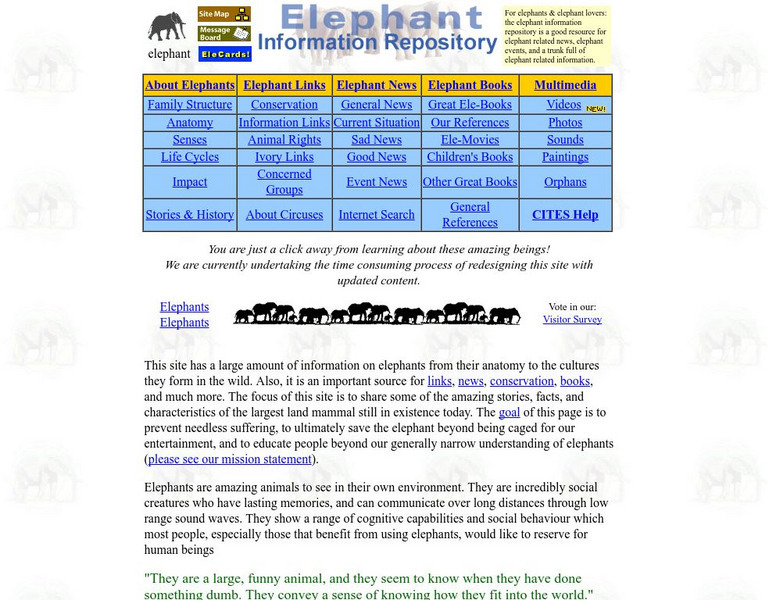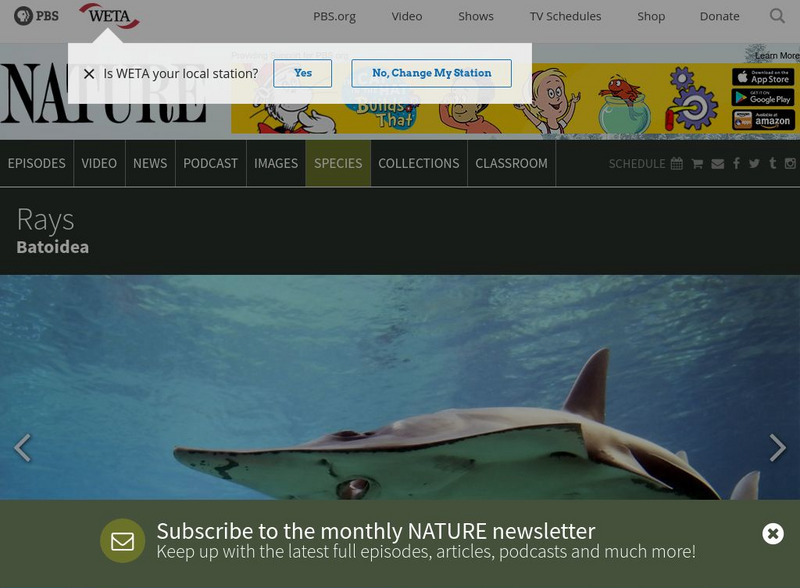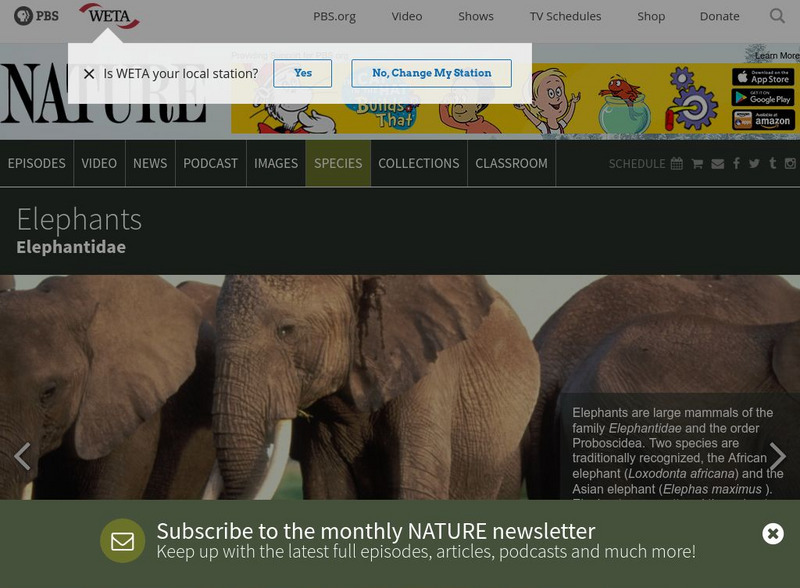Other
Mother and Child Health and Education Trust: Stages in the Life of a Child
Everything you need to know about pregnancy to early childhood development is simply a click away. A wealth of resources for family and consumer science teachers, new mothers and for students looking for answers.
PBS
Pbs Learning Media: Dinosaur Train
Dinosaur Train sparks children's interest in life science and natural history. As they explore a variety of animals, children develop the inquiry skills and knowledge needed to help them think, talk and act like paleontologists. Choose...
Other
Elephant Information Repository
A wealth of information on elephants. Learn about an elephant's family structure, anatomy, senses, life cycle, and environmental impact. Content also includes information on conservation efforts, video clips, audio clips, photos, and...
PBS
Nh Pbs: Nature Works: Horned Puffin
This site created by NatureWorks focuses on the Horned Puffin. The content of this resource includes a look at this species' characteristics, range, habitat, diet, behavior and life cycle.
PBS
Nh Pbs: Nature Works: Moose
The moose is the largest member of the deer family and the largest mammal in North America. Students will find information on its range, habitat, life cycle, behavior, and diet.
Alabama Learning Exchange
Alex: Angiosperms Plants With Flowers
By using a hands-on activity,the students will learn about the Life Cycle of the Angiosperms. Students will learn about the female and male parts of a flower. This would be a great activity to follow a unit on reproduction in flowering...
Canadian Wildlife Federation
Hinterland Who's Who: Downy Woodpecker
Get the facts about the Downy Woodpecker, eastern North America's most common woodpecker. Besides finding a detailed physical description of the smallest member of the woodpecker family, you'll also learn about some of this bird's unique...
PBS
Pbs Learning Media: Cloud Age Two
In this video segment from Nature, Cloud, a two-year-old horse, interacts with his family in the wild. [3:23]
ArtsNow
Arts Now Learning: Magic Rocks [Pdf]
For this lesson, students work in groups with each acting as a predator, prey, or family member in a particular habitat. They present their habitat performance to the class and students identify the habitat and animal relationships....
PBS
Pbs Nature: Ray
The word "manta" means blanket in Spanish--and the Manta ray gets its name from its blanketlike appearance in the water. Learn all about their life cycle and habitat in text and pictures.
Alabama Learning Exchange
Alex: Seeds: How They Grow
The students will be collecting, germinating and planting seeds to show the process of plant growth. The students will be recording the information in their science journal. In addition, the students will be observing the water cycle as...
Smithsonian Institution
National Museum of the American Indian: Indigenous Geography
Indigenous Geography helps you develop key understandings on nine different dimensions as they relate to six Native communities located in the Western Hemisphere. Learn about the creation stories, place boundaries and landmarks, calendar...
Other
Complete Guide to Canada: Canadian Traditions
A look at the stages of life Canadians go through, from birth to death, and the celebrations that happen along the way.
Other
Bristol Zoo: Gila Monster
You will find a number of key facts about the Gila monster under the following topics: geographical distribution, diet, food & feeding, habitat, conservation status, relatives, physical characteristics, lifestyle, family &...
San Diego Zoo Global
San Diego Zoo: Elephant
This resource provides detailed information about the elephant, as well as several pictures and audio clips. [1:00]
Alabama Learning Exchange
Alex: Gymnosperms, Cone Bearing Vascular Plants
Students will research printed encyclopedias, Internet resources (thinkfinity.org) and their science textbook to gather information to answer questions and draw an assigned portion of the Life Cycle of the Gymnosperms. This lesson plan...
PBS
Pbs Nature: Elephants
Did you know that the elephant is the largest animal in the world? Discover more about where they live, what they eat and how they socialize when you visit this site.
Curated OER
Moose
The moose is the largest member of the deer family and the largest mammal in North America. Students will find information on its range, habitat, life cycle, behavior, and diet.
Curated OER
Moose
The moose is the largest member of the deer family and the largest mammal in North America. Students will find information on its range, habitat, life cycle, behavior, and diet.
Curated OER
Moose Calf
The moose is the largest member of the deer family and the largest mammal in North America. Students will find information on its range, habitat, life cycle, behavior, and diet.














